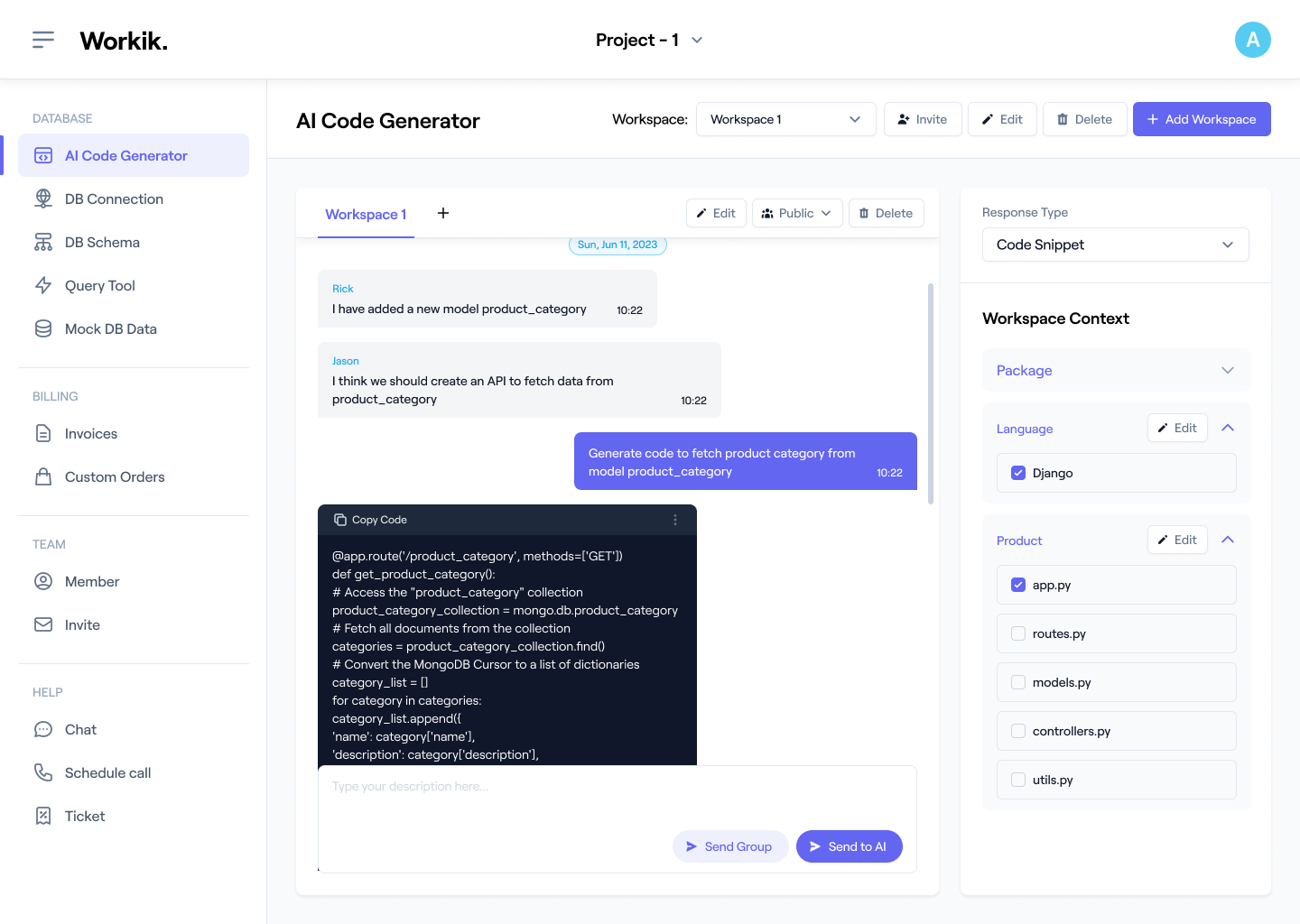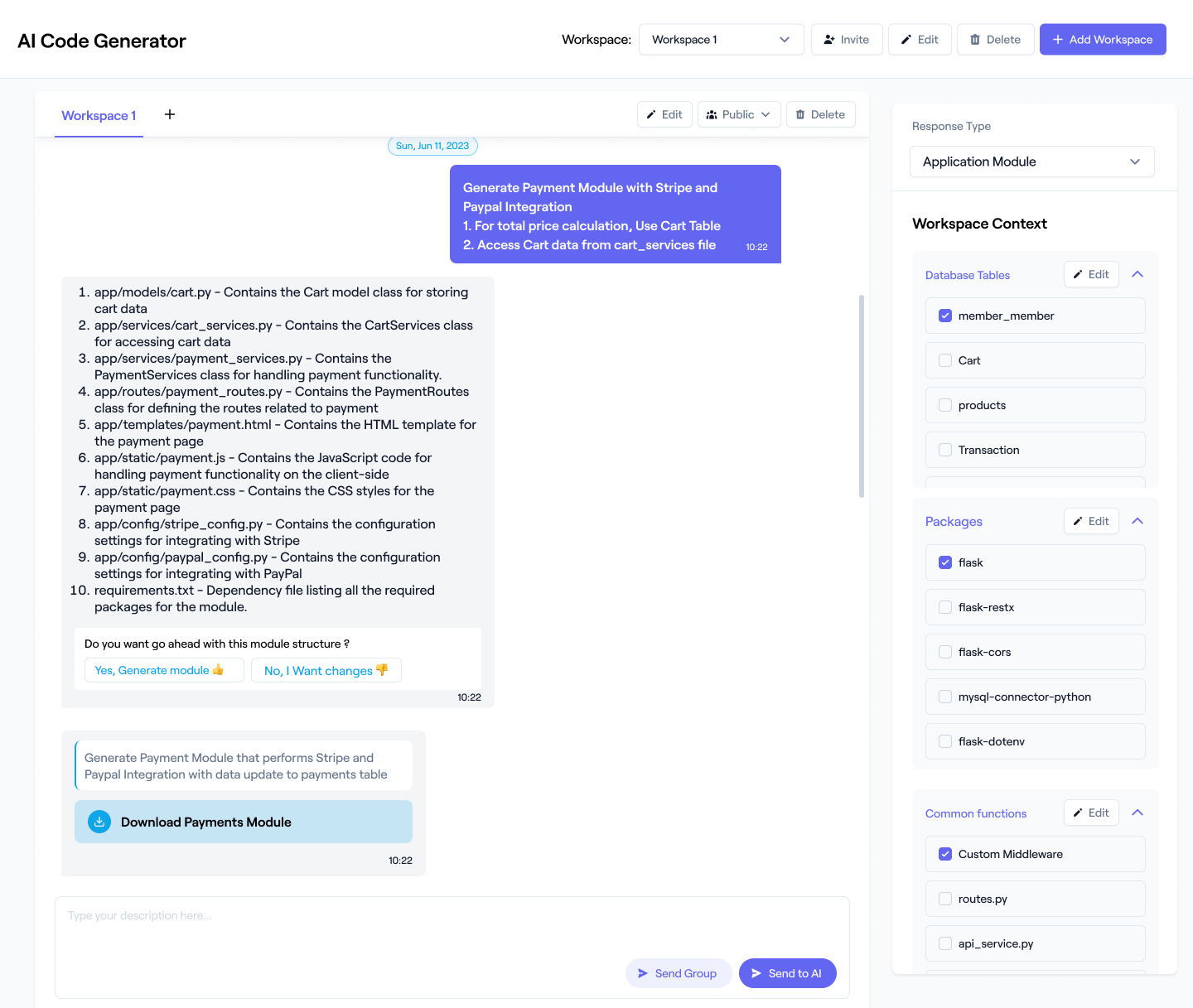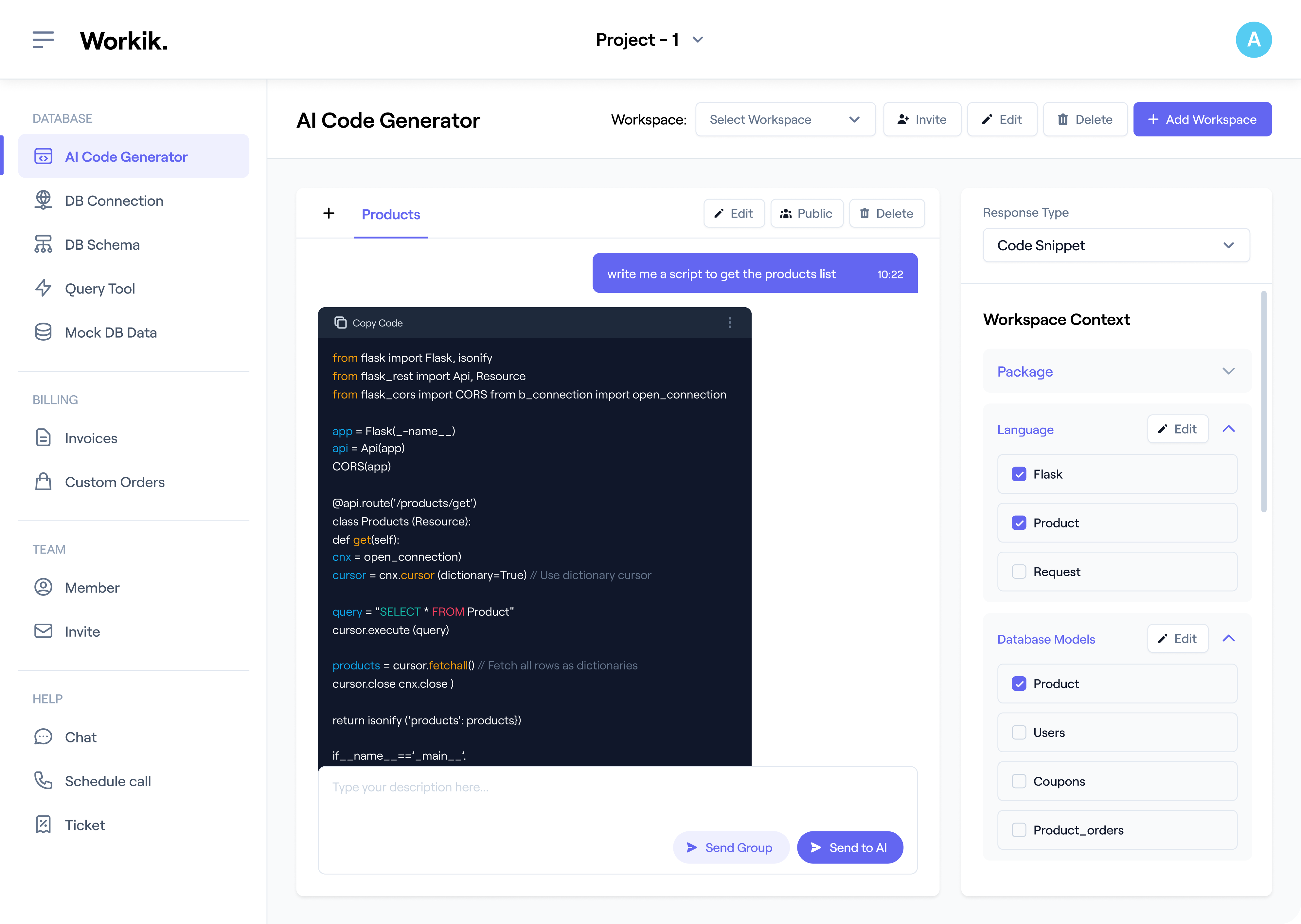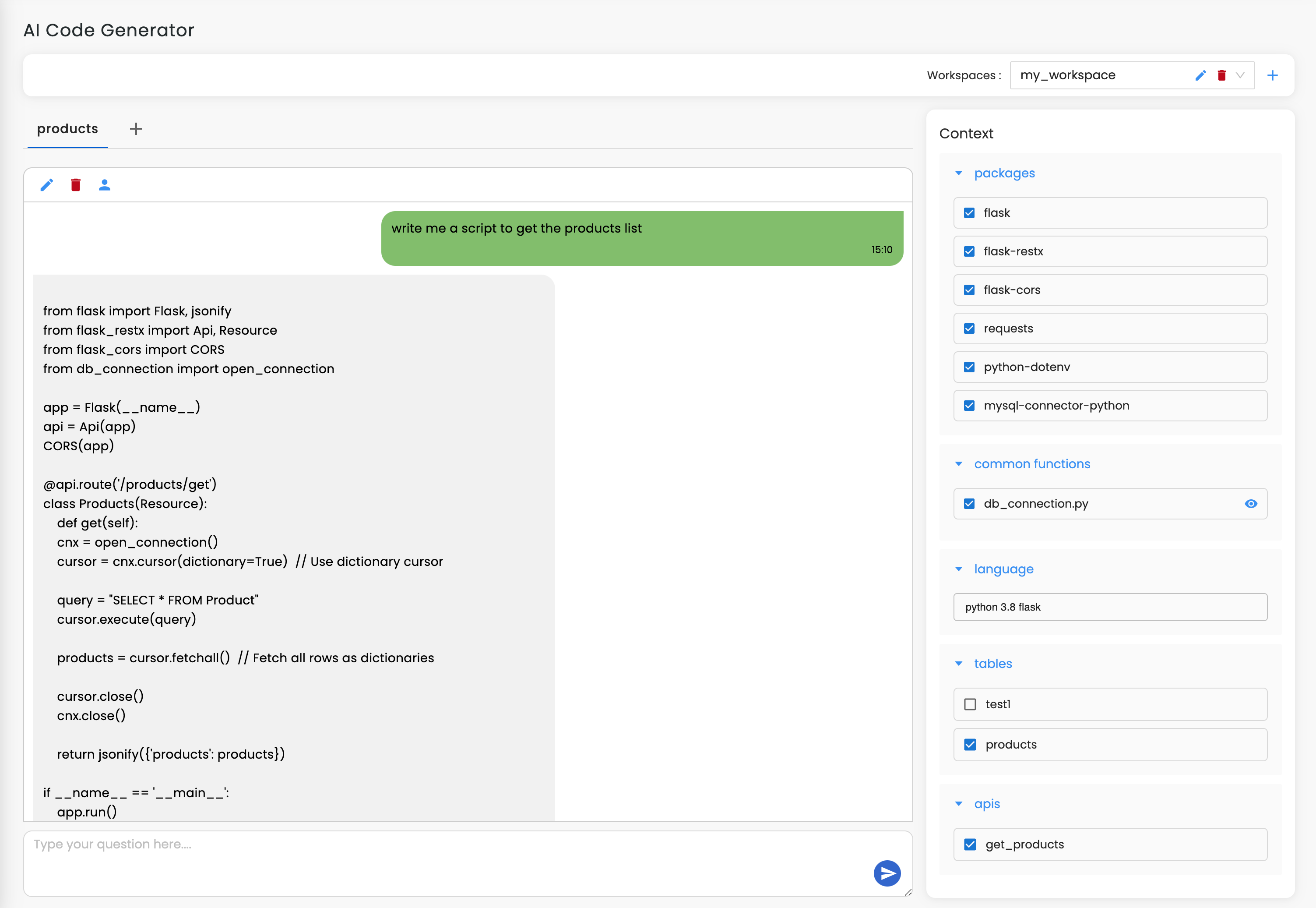
Join our community to see how developers are using Workik AI everyday.
Features

Catch SQL Errors Instantly
Validate queries with AI, catching syntax errors across MySQL, SQLite & more, using pgAdmin for seamless issue resolution.

Optimize Queries Automatically
AI refactors queries and suggests index improvements, boosting performance with tools like EXPLAIN in PostgreSQL and MySQL.

Ensure Schema Consistency
AI checks SQL queries against schemas, ensuring accurate joins and foreign keys with frameworks like SQLAlchemy and ActiveRecord.

Automate SQL Testing
Integrate AI with TSQLt and pytest to automate SQL query testing, ensuring consistent performance across environments.
How it works
Create a Workik account for free or sign up using Google to access the AI-powered SQL validation tools.
Upload your schema from GitHub, GitLab, or Bitbucket for context-aware validation. Specify your database (MySQL, PostgreSQL, SQLite), and define table relationships for precise query checks.
Enter your SQL queries into the AI-powered environment. AI catches syntax errors and suggests optimizations for performance improvement.
Run automated tests on your queries with tools like TSQLt or pytest, ensuring your SQL code performs consistently across all environments.


Expand


Expand


Expand


Expand


Expand


Expand


Expand


TESTIMONIALS
Real Stories, Real Results with Workik
Workik’s AI quickly caught errors I missed, making SQL validation fast and precise.

Francis Norman
Senior Developer
Workik ensures our SQL queries stay efficient, even across complex multi-database setups.

Trina Roberts
Software Engineer
SQL query optimization is seamless with Workik’s suggestions, saving a lot of debugging time.

Tyson Myers
Full-Stack Developer
What are some popular use cases of Workik’s AI-powered SQL Syntax Validator?


Workik’s AI-powered SQL Syntax Validator is ideal for use cases such as:
* Detecting syntax errors in SQL queries for MySQL, PostgreSQL, and SQL Server.
* Optimizing queries with AI-suggested indexing and refactoring using EXPLAIN.
* Validating SQL queries against schemas, ensuring correct table relationships and foreign keys.
* Automating SQL testing with TSQLt and pytest for consistent query accuracy.
* Validating SQL during database migrations or upgrades to prevent errors.
What context-setting options are available in Workik’s AI for SQL Syntax Validator?


Workik offers context-setting options for SQL Syntax Validator such as:
* Upload schemas from GitHub, GitLab, or Bitbucket for context-aware validation.
* Specify databases like MySQL, PostgreSQL, or SQLite for targeted validation.
* Define table relationships, joins, and foreign keys for precise query checks.
* Add custom SQL functions or stored procedures for full validation.
* Integrate ORM frameworks like SQLAlchemy for schema validation.
How does Workik optimize SQL queries?


Workik not only validates SQL syntax but also provides optimization suggestions such as indexing, join restructuring, and better use of subqueries. For example, large datasets in MySQL or PostgreSQL benefit from EXPLAIN-based query enhancements, leading to faster execution.
Can I validate complex queries across multiple databases?


Yes, Workik supports queries spanning MySQL, PostgreSQL, and SQL Server. It ensures cross-dialect compatibility, useful for multi-database environments. This prevents issues when switching databases or working with enterprise-level datasets.
Can Workik help with database migration?


Workik checks SQL compatibility during migrations, highlighting issues like reserved keywords and function differences, ensuring a smooth transition between databases like MySQL and PostgreSQL.
How does Workik handle SQL security checks?


Workik flags potential vulnerabilities, such as SQL injection risks, by analyzing query patterns. This is especially critical when handling user inputs or sensitive data, ensuring queries follow secure coding practices.
Generate Code For Free

SQL Syntax: Question & Answer
Developers use SQL syntax validation tools to catch syntax errors, optimize query performance, and maintain database integrity. These tools identify issues early, suggest improvements with EXPLAIN, and prevent vulnerabilities like SQL injection. They also reduce debugging time, especially for complex or multi-database queries.
Popular tools for SQL syntax validation include:
Validation Tools:
pgAdmin, SQL Server Management Studio (SSMS)
ORM Frameworks:
SQLAlchemy, ActiveRecord
Query Optimization Tools:
EXPLAIN
Testing Tools:
TSQLt, pytest
CI/CD Integration:
GitHub, GitLab, Bitbucket
Popular use cases of SQL syntax validation include but are not limited to:
Error Prevention:
Fixing syntax errors in complex queries before execution.
Performance Optimization:
Recommending indexing and join improvements for faster execution.
Schema Validation:
Ensuring SQL queries align with the database schema, including tables and foreign keys.
Cross-Database Compatibility:
Validating SQL queries for seamless migration between databases like MySQL and PostgreSQL.
Security Checks:
Detecting SQL injection risks and enforcing secure query structures.
Career opportunities for professionals skilled in SQL syntax include Database Administrator (DBA), SQL Developer, Data Engineer, Database Architect, Full Stack Developer, and DevOps Engineer.
Workik AI streamlines SQL syntax validation by:
Error Detection:
Instantly flags syntax errors in MySQL, PostgreSQL, and more.
Query Optimization:
Suggests indexing and refactoring improvements using EXPLAIN.
Schema Validation:
Ensures queries align with database schemas and relationships.
Cross-Platform Support:
Validates SQL across multiple databases for compatibility.
Security Checks:
Identifies SQL injection risks and enforces secure query patterns.
Automated Testing:
Works with TSQLt and pytest to automate SQL testing for consistent performance.
Explore more on Workik
Get in touch
Don't miss any updates of our product.
© Workik Inc. 2026 All rights reserved.

